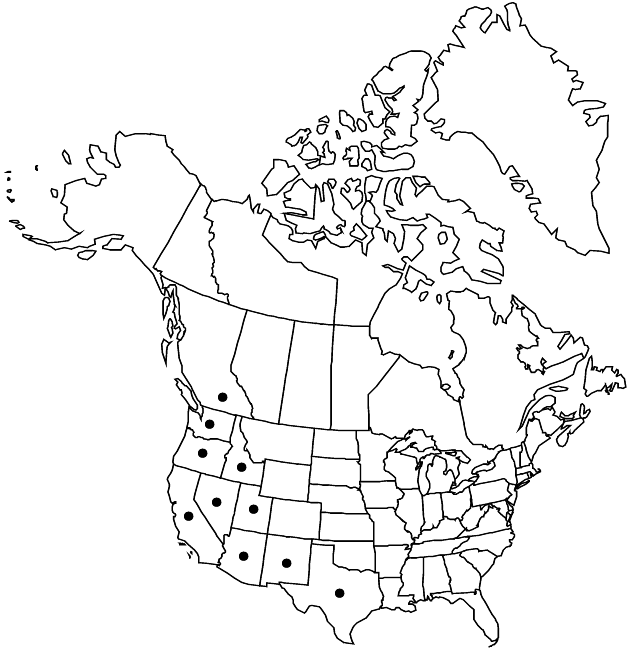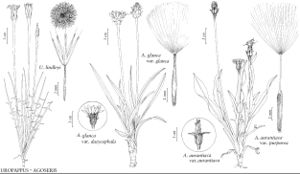Uropappus lindleyi
Trans. Amer. Philos. Soc., n. s. 7: 425. 1841.
Common names: Lindley’s silver puff
Illustrated
Basionym: Calaïs lindleyi de Candolle in A. P. de Candolle and A. L. P. P. de Candolle, Prodr. 7: 85. 1838
Synonyms: Microseris lindleyi (de Candolle) A. Gray Microseris linearifolia (Nuttall) Schultz Bipontinus Uropappus linearifolius Nuttall
Leaves 5–30 cm. Peduncles 5–40 cm. Involucres 10–40 mm after flowering. Phyllaries reflexed in fruit, oftenreddish, outer 2–8, inner 3–18. Ligules 2-–10 mm, equaling or barely surpassing phyllaries at flowering. Cypselae 7–17 mm; pappi: scales 5–15 mm, apices notched 1–2 mm, bristles delicate, 4–6 mm. 2n = 18.
Phenology: Flowering Mar–May.
Habitat: Grasslands, shrub steppe, open oak woodlands, chaparral, s coastal scrub, deserts, usually well drained soils on slopes, road banks, serpentine gravels, sandy desert flats
Elevation: 10–1800 m
Distribution
Loading map...

B.C., Ariz., Calif., Idaho, Nev., N.Mex., Oreg., Tex., Utah, Wash., Mexico (Baja California, Sonora).
Discussion
Uropappus lindleyi grows in the Columbia-Snake Rivers Plateau Province, Basin and Range Province, Interior Mountains and Plateaus System, and the Pacific Border System.
Selected References
None.
Lower Taxa
None.
... more about "Uropappus lindleyi"
